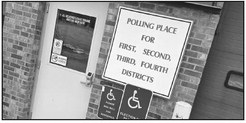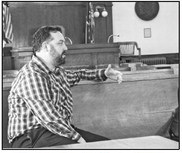County should stay the course on Chelsea Lake Dam
Members of the Taylor County Forestry Committee on Friday made the right call when they said “no thanks” to a proposal by a group of private property owners on Chelsea Lake to transfer ownership of additional shoreline to the county.
At issue are a series of berms along the shoreline which help maintain the lake’s water level. The berms have been in place for several decades. Like many similar structures around the state, the berms simply appeared rather than being planned and engineered as would be required today. The Department of Natural Resources considers these berms to be a part of the shoreline, much like the trees or swampy areas are.
With property owners still upset about the water level being lowered nearly a foot from historic levels based on the dam failure analysis, attention has focused on if these berms could be upgraded in order to help keep the water level higher.
Regardless of if this is even feasible given the elevations on the town of Westboro road that runs between Chelsea Lake and Little Chelsea Lake, the 11th hour request would derail plans for improvements to Chelsea Lake dam and dump significant additional costs on county taxpayers.
Including the berms as part of the impoundment system would require a new engineering study and a redesign of the dam structure to include the berms. Since the county has already spent close to $50,000 on dam studies and engineering for the dam, changing course at this time is not practical. Those studies have resulted in plans to replace the dam with a new structure engineered for a projected 80-year lifespan. County taxpayers are committed to the $240,000 project and earlier this year applied for a state grant that, if successful, would cover half the cost of the project. Revisiting the project at this point would require starting the process all over and greatly expand its scope. With the state projecting budget cuts due to lost revenue from the COVID-19 pandemic, future funding of the dam grant program is in doubt.
A better option that would balance the interests of area property owners with those of the entire county is for the county to proceed with the plans that are in place and for the local property owners to establish a lake district. A lake district is a local governmental authority that can own property, apply for grants and assess taxes under an independent board. This differs from lake associations which are voluntary organizations without the authority to tax or receive dam grant funds.
A lake district could work with the town to raise the road level or own and maintain or upgrade the berms while being independent from county board politics since it would have access to its own funding sources. If property owners want additional improvements beyond the county paying to rebuild Chelsea Lake Dam, they need to step up and make it happen on their own.




